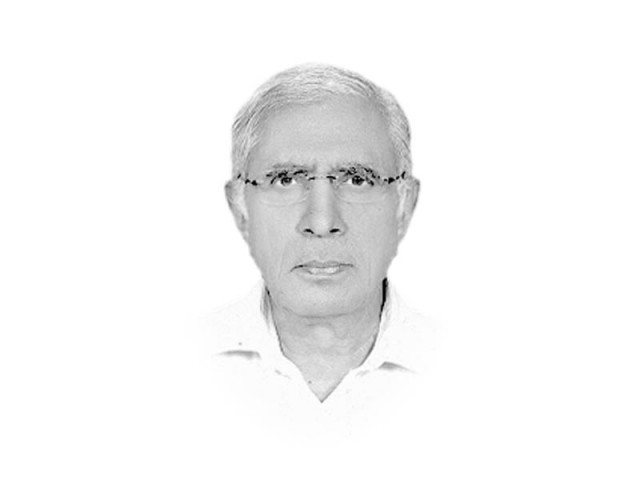Depreciation of rupee — a boon or a bane
The rupee is taking a free fall. It is now almost Rs100 to a US dollar.

The writer is Executive Editor of The Express Tribune
If it is all to the good of the economy then why so much concern among concerned Pakistanis about the rupee’s ongoing free fall? Well, for one thing, fuel which keeps the economy’s wheels turning and which makes up the bulk of our imports would become intolerably costly and may even wipe out any gains made, if at all, in exports, provided we were to succeed in taking advantage of a cheaper rupee. But more than that, the ruling elite will find it impossible to continue its First World lifestyle without the ‘concessional’ dole and ‘subsidised’ imports of non-essential goods. Official economic managers would go crazy trying to manage the economy without the ‘free lunch’. The two had never learnt how to cope with the hardships of living within available means which is what at least 90 per cent of Pakistanis have been doing all these years.
Our ruling elite and their Gumashtas have always been very keen on keeping the value of our currency at an artificially higher level vis-à-vis the world’s hard currencies because that allowed them the easy way out of maintaining their First World lifestyle while managing a Third World economy. And they had been keeping our major exporters, mostly the textile tycoons, on their side by subsidising their inputs and even their exports using the resources that should have gone to the deserving have-nots of the country. We in the media used to be fed with the misleading notion that a higher-valued currency (even if it is artificially held) meant a politically higher world ranking and reflected a healthy economy. I remember the times when right on the eve of the visits of the IMF’s Article IV missions or at the time of negotiations for an IMF programme, these Gumashtas would visit newspaper offices to brief the editors on the ‘great benefits’ that would accrue to the nation on the political/economic front if we did not succumb to the Fund’s pressure to ‘devalue’ our currency to its real worth. And they would also persuade us to believe that the approval of ‘larger’ concessional assistance by the bilateral and multilateral aid agencies was, in fact, an expression of their confidence in our economic policy and its management!
Remember the Aid to Pakistan Consortium? Every year on the eve of budget presentation, we would go to Paris where all our donors would gather and we would present to them a long list of projects seeking financing. Invariably, the donors would pick only those projects which would serve their economic interests, not ours. A number of studies carried out by independent domestic and international economists have shown that in most cases, 99 cents out of every one dollar of aid went back to the donor countries by way of project-related imports, consultancy fees, shipping freight, etc. However, our ruling elite would be happy with even the remaining one cent, pocketing a good part of it and parting with its bad part for the project without bothering about the ever-increasing debt burden camouflaged largely by an artificially-held rupee value.
Published in The Express Tribune, December 26th, 2012.














COMMENTS
Comments are moderated and generally will be posted if they are on-topic and not abusive.
For more information, please see our Comments FAQ